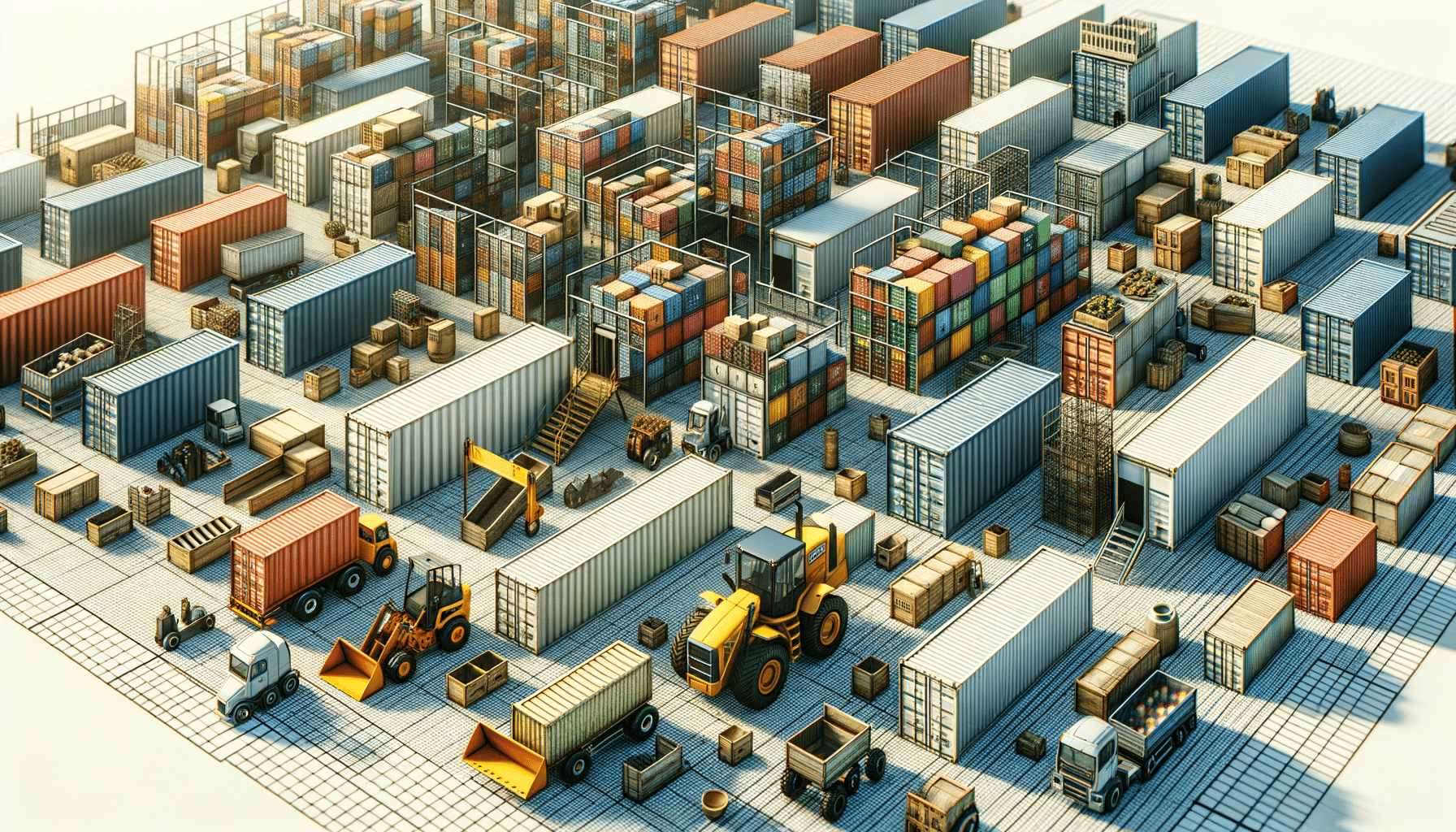Unlocking the Potential of Storage Containers: A Comprehensive Guide
Discover the versatile world of storage containers and how they can enhance organization and efficiency in various settings.

Introduction to Storage Containers
In the modern world, the need for efficient storage solutions is more critical than ever. Whether you are organizing a home, managing a business, or tackling a large-scale industrial project, storage containers offer a versatile and practical solution. These containers come in a variety of shapes, sizes, and materials, each designed to meet specific needs. From plastic bins to metal crates, the options are endless. Understanding the different types of storage containers and their applications can significantly enhance your organizational capabilities.
Types of Storage Containers
Storage containers are available in a wide array of types, each tailored to specific uses. Common types include:
- Plastic Bins: These are lightweight, durable, and often stackable, making them ideal for home and office use.
- Metal Containers: Known for their strength and durability, metal containers are suitable for industrial applications and heavy-duty storage.
- Wooden Crates: Often used for shipping and storage of delicate items, wooden crates provide a rustic charm.
- Glass Containers: Perfect for kitchen storage, glass containers are both functional and aesthetically pleasing.
Each type of container has its advantages and is suited for particular storage needs. For instance, plastic bins are excellent for organizing household items, while metal containers are preferred for storing industrial equipment. Understanding the benefits and limitations of each type can help in selecting the right container for your needs.
Benefits of Using Storage Containers
The use of storage containers offers numerous benefits that enhance both personal and professional spaces. Key advantages include:
- Organization: Storage containers help in categorizing and organizing items, reducing clutter and improving efficiency.
- Protection: They provide protection against dust, moisture, and pests, ensuring the longevity of stored items.
- Space Optimization: With stackable designs, storage containers maximize space utilization.
- Mobility: Many containers come with wheels or handles, making it easy to move items from one place to another.
These benefits make storage containers an indispensable tool in both homes and businesses, facilitating better management and preservation of items.
Innovative Uses of Storage Containers
Storage containers are not limited to conventional storage; they have found innovative applications across various fields:
- Shipping Container Homes: Repurposing large shipping containers into homes is a growing trend, offering affordable and sustainable housing solutions.
- Pop-up Shops: Entrepreneurs are using containers as temporary retail spaces, providing flexibility and mobility.
- Office Spaces: Containers are being transformed into modern, eco-friendly office spaces, promoting sustainable architecture.
These creative uses highlight the adaptability of storage containers, proving that they can be more than just storage solutions.
Choosing the Right Storage Container
Selecting the right storage container requires consideration of several factors:
- Material: Choose a material that suits the items you need to store and the environment they will be in.
- Size: Ensure the container is appropriately sized for the items and the available space.
- Functionality: Look for features such as stackability, handles, or wheels for ease of use.
- Durability: Consider the container’s durability, especially if it will be used in harsh conditions.
By evaluating these factors, you can find a container that perfectly fits your storage needs, ensuring efficiency and longevity.
Conclusion
Storage containers are a versatile and valuable resource in both personal and professional environments. By understanding the different types, benefits, and innovative uses, you can make informed decisions that enhance organization and efficiency. Whether for simple home storage or complex industrial needs, the right storage container can make a significant difference.